NT Coroner assesses ‘catastrophic failure’ in post-anaesthetic care for 48-year-old mum Miss Guyula
‘I touched her body and felt her pulse, but it was the machine making her alive’: A Territory woman has described her distress watching her mother on a ventilator after a minor surgery went fatally wrong.

News
Don't miss out on the headlines from News. Followed categories will be added to My News.
Latest, August 23: Remembering the endless whirr of her mother’s ventilator and watching the tubes poked into her body, a Territory daughter said she knew the “strong woman” who raised her was already gone.
“I touched her body and felt her pulse, but it was the machine making her alive. It wasn’t her,” Maxine Wunungmurra told the NT coroner on Friday.
Coroner Elisabeth Armitage has for the past five days heard about the “unexpected deaths” of 66-year-old Judy Smart and 48-year-old Miss Guyula, who both went in for minor surgeries yet suffered fatal hypoxic brain injuries during their treatment in the ‘recovery’ Post Anaesthetic Care Unit at Darwin Royal Hospital.
Miss Guyula went five minutes without sufficient oxygen after an emergency intubation by PACU staff inadvertently put her breathing tube in her oesophagus, not her windpipe.
The coroner has repeatedly heard that the failure to recognise an oesophageal intubation was known as a “never ever event”.
Health workers said they were forced to carry out the intervention in the ‘higher risk’ environment of the recovery ward due to bed block in the operating rooms.
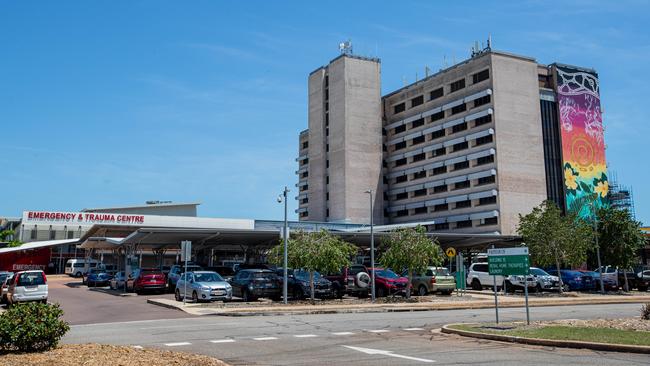
NAAJA barrister Hannah Donaldson, who represented Miss Guyula’s family, said this choice had “catastrophic implications”.
The coroner heard all staff believed they had successfully inserted the breathing tube, with signs of chest fall, ‘misting’ and what they incorrectly assumed was a monitoring her breathing.
However an independent review of the “unexpected death” by NSW-based intensive care and aesthetics specialist Ian Seppelt found it was “dumbfounding” that multiple staff did not realise the device they thought was monitoring her carbon dioxide output was actually a muscle movements monitor.
Dr Seppelt said the ‘gold standard’ for intubations was to have a CMAC device — a breathing tube with a camera attached — and for patients to be connected to a carbon dioxide monitor.
NT Health representative Michael McCarthy said at the time there were just three CMACs across nine operating wards and only two carbon dioxide monitors in the 14-bay recovery room.
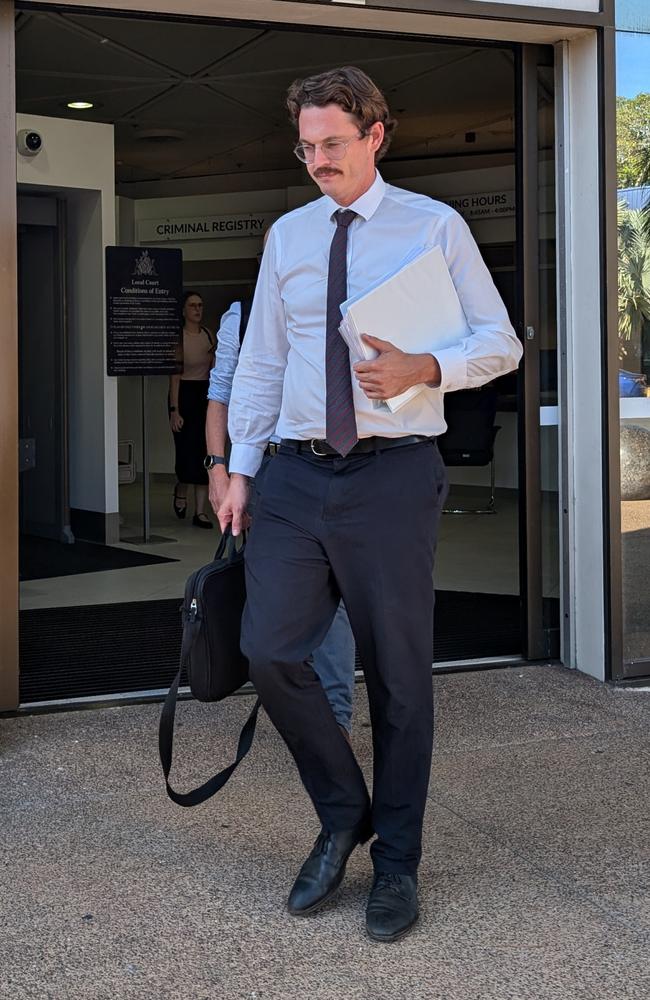
Mr McCarthy said it was acknowledged it was an error not to use the CMAC during the intubation of Miss Guyula, and the $5000 carbon dioxide monitors were now at every bedside in PACU, modified to ensure the monitor mix-up did not occur again.
The 48-year-old — who had simply arrived at Royal Darwin Hospital to drain a large boil on her buttocks — spent her final 15 days on a ventilator in the intensive care unit until she passed on March 17, 2022.
Her eldest daughter Maxine Wunungmurra told the coroner about her pain and confusion while waiting by her mother’s bedside in the ICU.
“After mum’s surgery they treated my mum like she was still alive, but she was already gone,” Ms Wunungmurra said.
“I felt like they were tricking me, and not telling me how bad she was.”
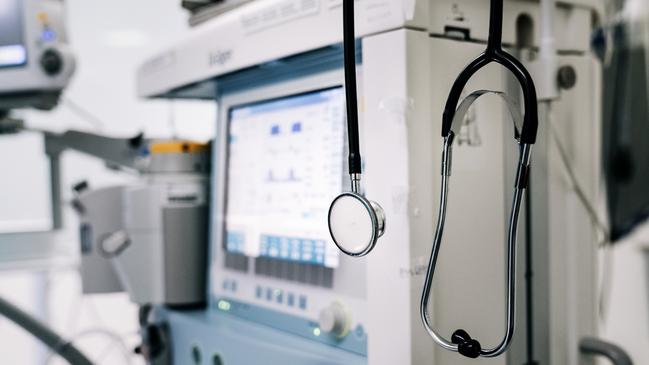
Ms Wunungmurra said when she asked for more information about what happened, the nurses “faces got strong” adding that it “felt like they weren’t giving me the right information”.
Both the family’s lawyer and counsel assisting the coroner Chrissy McConnel highlighted their ongoing concerns about the availability of Aboriginal language translators, with both the hospital and in the courts struggling to access Yolngu Matha translators.
Miss Guyula’s mother Elizabeth Guritjbal told the coroner about how her “healthy girl” was slowly taken by three entirely preventable illnesses, firstly with rheumatic heart disease, then diabetes which claimed both her legs, and finally the infected boil.
Ms Guritjbal and the rest of Miss Guyula’s family maintain that the 48-year-old should have returned home, had the hospital treated her properly.
“Seasons change but my memories brings back how I grew up my children. I always stay lonely and I always remember my daughter”.
“Sometimes I feel worried and I cry … I really miss her. She did not have enough age.”
NT mum’s breathing tube pumped into stomach track
August 22: Doctors have warned that significant “system changes” are needed to ensure the Royal Darwin Hospital becomes a “safer place for patients” after a 48-year-old mum was exposed to a fatal “never event”.
The Territory Coroner Elisabeth Armitage in court heard Elcho Island woman, Miss Guyula, passed away 15 days after what was meant to be a minor and straightforward operation in Royal Darwin Hospital in March 2022.
Miss Guyula is one of two women whose treatment in ‘recovery’ on the Post-Anaesthetic Care unit has been subject to intense scrutiny this week, following a similar inquest into the death of Judy Smart, 66.
Miss Guyula went to the hospital on March 2 that year for the minor operation to drain and clean a painful 12cm by 8cm boil on her buttock, which posed a severe infection risk due to her multiple comorbidities.
On Thursday Ms Armitage heard after arriving in the recovery unit Miss Guyula went five minutes without sufficient oxygen after workers put a breathing tube down her oesophagus, not her windpipe.
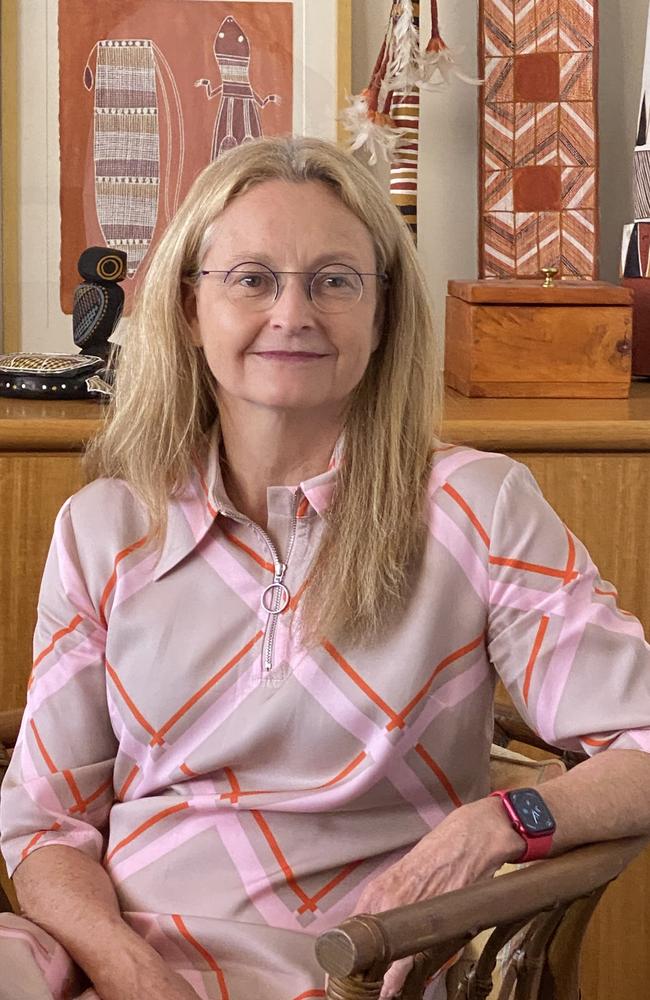
Elystan Hughes, the anaesthetist who realised the critical error, said this kind of incident was considered a “never event”.
Dr Hughes said while esophageal intubations — where the breathing tube is put into the pipeway to the stomach — were unusual “but they can happen, and they can happen to anyone”.
“But they should not go unrecognised … you should be able to recognise it rapidly and correctly,” he said.
Dr Hughes said the “gold standard” for all intubation processes was to have a carbon dioxide monitor nearby, however these devices were not widely available on the Darwin recovery ward at the time.
The coroner heard the intubation team may have mistaken Miss Guyula’s bodily reactions as evidence of breathing.
PACU staff also said they believed Miss Guyula was attached to a capnography machine to monitor her carbon dioxide levels — but it was actually device to monitor muscle movements.
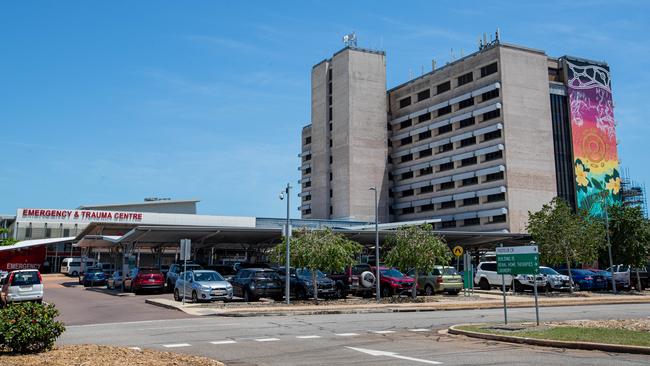
Dr Hughes said there were clear procedural and training issues in the ward, and said he warned that institutional practices should change since Miss Guyula’s passing.
“We need to be better at managing these emergencies in PACU,” he said.
Dr Hughes said “ideally” Ms Guyula should have been returned to an operating theatre for the intubation, but acknowledged at the time hospital records showed all theatre rooms were full.
Anaesthesiologist Bernadette Wilks said she saw Miss Guyula struggling to breathe and it was decided to go forward with the intubation in PACU due to the surgical room bed-block.
Dr Wilks told the coroner she noticed Miss Guyula’s chest and belly were moving out of sync with “seesaw breathing”, a sign that the paralysis medication used during her surgery had an incomplete reversal.
She said and wanted to re-intubate Miss Guyula before it became an “uncontrolled intubation”.
“I knew there wasn’t going to be another (operating room) available for another 15 to 20 minutes,” Dr Wilks said.
Staff specialists anaesthetist Dr Yan Lai, who performed the intubation with the assistance of an experienced PACU nurse, agreed that the recovery ward was a “high risk environment” for the medical intervention.
“Although it is difficult for people to understand why we put the tube in the wrong place, it’s actually a very common occurrence,” Dr Lai said on Wednesday.
She said a 2019 international study found the rate of esophageal intubations occurred one in 18 times.
“(But) the rate of unrecognised esophageal intubations in the operating theatre was one in a million,” she said.
Staff believed Miss Guyula’s intubation had been successful, with signs of chest rise and ‘misting’ on the tube.
Looking back, Dr Lai told the coroner it would also have been beneficial to have had a team leader to oversee the intubation and resuscitation efforts, but Dr Wilks said the lack of a co-ordination role was “common”.
“There was not a clear leader, I think we all had assumptions,” Dr Wilks said
The now United States-based doctor said the Darwin hospital “could definitely have more equipment and more staff” given the scale of the Territory’s health burden.
“Working in Darwin is a challenging place, it’s underfunded and it has a lot of very unwell patients,” Dr Wilks said.
“Hopefully out of this scenario there’ll be some system changes that will help make a challenging environment like Darwin safer for patients.”
NT Health legal representative Michael McCarthy said following Miss Guyula’s passing the carbon dioxide output monitor, a capnography machine, was now available for every bed in the recovery room.
‘Catastrophic failure’ in post-anaesthetic care for 48-year-old mum Miss Guyula
A Territory mum’s life support system was switched off just 15 days after she reluctantly left her island home for what was meant to be a minor, straightforward operation.
On Wednesday, NT coroner Elisabeth Armitage opened her investigation into the “catastrophic series of events” that led to the passing of Miss Guyula, 48, during her post-anaesthetic care at Royal Darwin Hospital.
Counsel assisting the coroner Chrissy McConnel said the Yolngu woman reluctantly left her Elcho Island home on March 2, 2022 for a routine surgery to drain a boil on her buttock.
Ms McConnel said six days after initially reporting her concerns to the local Galiwin’ku Miwatj Health Clinic, Miss Guyula returned to the centre after suffering from vomiting and fevers, with the painful abscess growing to 12cm by 8cm.
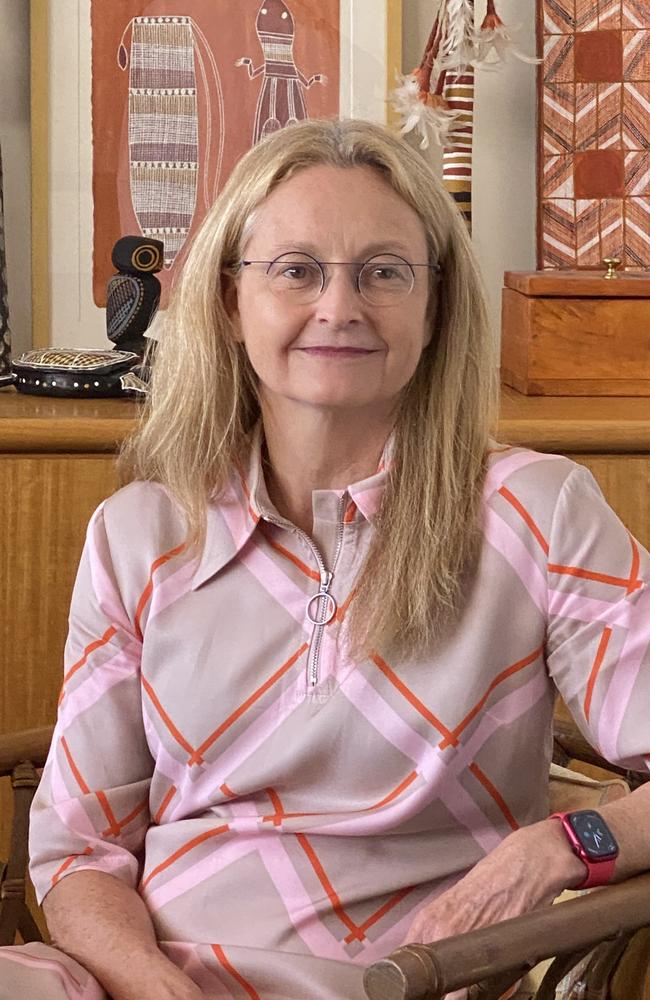
Clinic staff believed that due to her comorbidities – including type-2 diabetes resulting in the amputation of both her legs, end stage chronic kidney disease and stage four rheumatic heart disease – Miss Guyula was considered “at risk of severe illness and complications” and convinced her to board a CareFlight to Darwin accompanied by her daughter Maxine.
“Of course, it was never contemplated by them that she wouldn’t come back,” Ms McConnel said.
She said the required operation was still considered routine and straightforward.
RDH staff specialists anaesthetist Yan Lai told the inquest her initial surgical anaesthesia plan for Miss Guyula was revised and amended by another more senior doctor to include the use of an endotracheal tube — a pipe through the her windpipe — to reduce the risk of an airway obstruction.
Following the surgery Miss Guyula was assigned to a junior nurse to the “yellow bay” of the medium acuity section of the recovery unit.
Post-Anaesthetic Care Unit team leader Dale Ricketts told the coroner it was there Miss Guyula’s condition appeared to rapidly deteriorate.
The experienced registered nurse told the coroner it was determined the Miss Guyula needed to be re-intubated, but there were no free operating theatres left.
“It’s not common to intubate a patient in recovery,” Ms Ricketts said.
Ms Ricketts said she, a junior nurse and the floor anaesthetist performed the intubation, and she believed she saw signs of breathing.
“We have chest rise,” she remembered calling out, and heard someone shout “we have CO2”.
But within 60 seconds Ms Ricketts realised something was wrong and Miss Guyula’s oxygen levels were dropping rapidly.
Another doctor realised the two critical errors; her breathing tube was linked to her oesophagus rather than her windpipe; and someone had attached the incorrect monitor.
Miss Guyula went five minutes without sufficient oxygen.
The woman had to be stabilised twice, after her blood pressure went from dangerously low to “stroke”-like high readings.
The coroner heard Miss Guyula’s high readings were due to health workers failing to realise for several minutes that an automatic medication pump was still attached and was “lost” under her bedding.
Miss Guyula was then put on a ventilator and the Intensive Care Unit where she remained for 10 days.
On March 13 she went into another hypoxic cardiac arrest after rolling over on her bed, displacing her breathing tube.
“By the time that doctors were able to stabilise Miss Guyula, she had experienced three cardiac arrests and approximately 50 minutes of intermittent hypoxia,” Ms McConnel said.
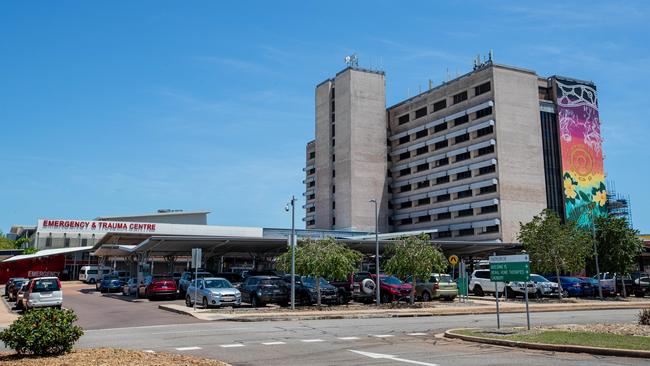
It was later discovered Miss Guyula had suffered a “significant tear” in her windpipe and her airway was “swollen, damaged and obstructed”.
Fifteen days after leaving home for a minor surgery, her ventilator was turned off.
Miss Guyula passed away an hour later on March 17 with her family by her side.
Ms McConnel said it was clear there were “numerous failures” in the Territory woman’s care, with the inquest to consider whether there was the appropriate equipment, training and systems in place.
Ms Ricketts told the coroner the Darwin recovery ward had suffered from a “mass exodus” of nurses post-Covid.
“The acuity of our patients is getting worse, our patients are sicker,” she said.
“And a lot of our staff are very junior.”
Miss Guyula is one of two women whose treatment in the recovery ward of Royal Darwin Hospital to be investigated by the Territory coroner this week, following a similar inquest into the death of 66-year-old Judy Smart.
The inquest continues on Thursday.
More Coverage
Originally published as NT Coroner assesses ‘catastrophic failure’ in post-anaesthetic care for 48-year-old mum Miss Guyula





